 | 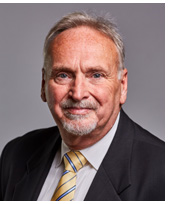 Net neutrality in Canada, and why it matters in the digital age Net neutrality in Canada, and why it matters in the digital age
Net neutrality is an issue that has people across the planet stirred up. The massive increase in data traffic has led inexorably to traffic management issues. But, as consumers turn to digital platforms, it is paramount that they be able to make their own choices, take advantage of innovation and exchange their ideas freely.
In Canada, we have had a clear regulatory framework on the matter since 2009, the year we began regulating internet traffic management practices.
In addition, a new policy has been in place since 2017 that governs differential pricing practices, which is an issue that arises when identical or similar products are being sold to customers at different prices. When internet service providers (ISP) set different prices depending on the content, they are exercising a degree of influence over consumers’ choice of certain content. As a result, the CRTC stipulated that ISPs had to treat all data use equally.
We therefore have a rigorous framework in place and firmly support net neutrality. That being said, we also recognise that any regulatory provisions surrounding net neutrality must be flexible enough to adapt to the changes ushered in by new technologies. The future no doubt holds challenges in this area, particularly with the development of 5G and the Internet of Things.
We believe that net neutrality is essential because we believe that it is, above all, in the best interests of the Canadian public.
Ian Scott, Chair of Canadian regulator, CRTC

|  |
 |
Regulation in action
Operators have stepped up in response to Arcep’s call for investment
It’s a new record. In 2017, telecoms operators invested €9.6 billion (excluding spending on frequencies) or €660 million more than the year before.
For Arcep Chair, Sébastien Soriano, this record high is “significant”: “I can see that [operators] heard my call and broke open their piggybanks. Fixed and mobile internet coverage were real black marks against our country. But we now have an industry that’s stepping up,” he said in an interview with Le Monde on 22 May. These investments will enable France to make up for the time lost on new networks, and to come in line with the country’s need for competitive infrastructures.
Public authorities are backing this investment effort, not only through the New Deal for mobile that was reached in January, but also through Arcep’s pro-investment regulation. This means employing every form of leverage possible to encourage operators to invest, to lower barriers to entry while making market players accountable, and enabling each of them to monetise their efforts. Every operator has something of a “right and duty” to play its parts in making the investments needed to outfit the country with competitive infrastructures.
But France still lags behind on the connectivity front. And operators need to stay the course to close the gap, but also to be fully ready for 5G down the road.
Find out more
Telecoms market figures for 2017 (in French)
Presentation given at Arcep’s “Telconomics” press conference on 22 May
Sébastien Soriano interview with Le Monde (in French)
|  |
 |
|
On our radar
| |
Bruno Lasserre, Vice-president of the Conseil d’État
On 15 May, Bruno Lasserre was appointed Vice-president of the Conseil d’État – France’s highest administrative court. He will be replacing Jean-Marc Sauvé and will take up his new duties on 29 May.
Chair of the French Competition Authority from 2004 to 2016, Bruno Lasserre worked through the 90s on reforming the telecommunications sector and opening it up to competition. He thus played a decisive part in creating an independent regulatory authority, ART, which later became Arcep.
| 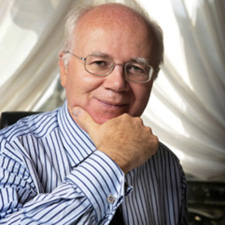
|
|
| | 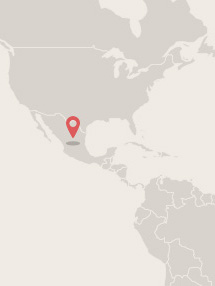 | |
News from around the world
Close to a year after Europe, will roaming charges soon be a thing of the past in 19 countries in the Americas? This is what the Inter-American Telecommunications Commission (Citel) decided at their Assembly in March. This decision, whose implementation date still remains to be determined, would allow people travelling in the signatory countries to roam like at home, i.e. to use their mobile phones under the same conditions as those they enjoy at home.
So European regulation on the matter has gained some followers. It put an end to roaming fees across the EU on 15 June 2017, which has been a veritable revolution for Europeans. Mobile data traffic across Europe has exploded since then: + 435% between summer 2016 and summer 2017 according to figures from BEREC, the Body of European Regulators for Electronic Communications. Consumption rates for French people travelling in Europe have also risen considerably. They generated close to 20,000 Terabytes of data between July and September 2017, compared to 5,000 for that same period in 2016.
The countries involved in the trans-American agreement are: Argentina, the Bahamas, Barbados, Belize, Brazil, Canada, Colombia, Costa Rica, Ecuador, El Salvador, the United States, Mexico, Nicaragua, Panama, Paraguay, Peru, the Dominican Republic, Trinity and Tobago and Uruguay.
|
| |
 |

L'Arcep likes
Training digital industry workers
Accelerating digital network rollouts, both fixed and mobile, is one of Arcep’s top priorities, as it seeks to ensure that every user can have access to high quality telecom services.
This is why Arcep salutes the growing number of initiatives being taken to train people in digital operations jobs. Without them, this goal could not be achieved. Arcep cannot count all of the training programmes now in place but, among this host of initiatives, let us cite the Electrical and Climactic Engineering Trade Union (SERCE), the school of Digital Plumbers (Plombiers du Numérique) in Bordeaux, the “Innovance” network, the gold standard in providing digital network and services skills and jobs, and the French government’s “10Knum” plan, which is part of a nationwide programme for investing in skills.
|  | | | | |
|
 |
Field notes
Optical fibre: is there tension on the (production) line?
On 14 May, an Arcep delegation visited two optical fibre plants operated by Prysmian, the world’s leading supplier of energy and telecoms cables, located in the Hauts-de-France. One plant is in Douvrin, in the heart of the Artois, and the other has been operating in Calais since 1890. Douvrin – the company’s flagship fibre plant – is where preforms (the raw material for producing fibre) are made, and transformed into optical fibre on-site, which are then sent to Calais, among other places, where 1 to 4,000-fibre optical cables are produced. Virtually the entirety of the Calais plant’s output is shipped to the French market.
This visit provided the Arcep delegation with an opportunity to ask the manufacturer, “Is there a shortage of fibre in today’s global market?”
France’s FttH market, which has been growing steadily since 2012, is “currently Europe’s most dynamic,” (13 million km/optical fibre deployed in 2017, versus 5 million in 2004). In terms of fibre deployed for FttH networks, France ranks fourth in the world, behind China, the United States and India. The head of Prysmian believes that “until a country has reached 2 to 3 km of fibre per person (as is the case in South Korea and Japan today), rollouts are not yet complete. France is currently at 0.8 km/person, or 100 million km/fibre remaining to be deployed”. The difficulty in meeting demand derives from the strain created by a sudden surge in the fibre market – driven largely by China which represents 60% of the global market – and from a bottleneck in the supply of preforms to manufacturers as demand well outweighs current production capacity. Preform production is a high value-added business that requires massive investments, which take a long time to put to work, require around seven years to amortise and are primarily fixed costs. Prysmian reports that it already sold its entire global fibre output for 2018 (around 40 million km) and estimates that it could have sold at least 15% more if it had had the production capacity. This could have allowed it to take orders from certain customers, depending on the volume they required and their ability to make long-term commitments, and to decline others.
The manufacturer believes that the solution to current market tensions will be to both increase production capacity (Prysmian has announced a €250 million investment in its production plants worldwide) and to improve shipment forecasting needs for fibre PIN in France.
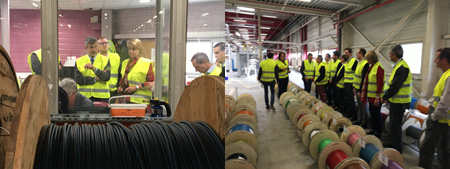 |  |
 |
Arcep, telling it like it is
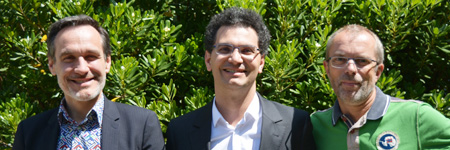 The numbering plan is getting a facelift! The numbering plan is getting a facelift!
The phone numbers you use every day: 10-digit, fixed or mobile, short or emergency numbers, or maybe prefixed by a country code… But did you know that they comply with very strict rules set by a numbering plan? Arcep is the one responsible for establishing this numbering plan. The Authority now wants to overhaul the entire national numbering plan. This will include close to 30 changes that will affect every aspect of this plan. It will require around two years of work from the Arcep team in charge of numbering.
There are three reasons why this modernisation is needed:
- To protect users, who can fall prey to malicious practices (spam calls, bill shock, etc.). Arcep is proposing to impose caps on the price of directory assistance services;
- Changing user behaviour, to which regulation needs to adapt. For instance, Arcep is proposing that fixed numbers, which up until now have been dedicated solely to voice calling services, be also made accessible to SMS and MMS services as well;
- More efficient number plan management, to avoid a dearth of numbers and satisfy the growing needs of French businesses. It is Arcep that assigns numbers to the operators that need them. Ninety three percent of these requests are now handled electronically. Assignments are processed within eight days, compared to 13 in 2015, a timeline that is expected to be even further shortened in the coming months.
The “Operators and Legal obligations" Unit
Olivier Delclos, Jean-Michel Février, Emmanuel Gay
|  |
 |
Mark your calendar

Presentation of the 2018 report on the State of the internet in France | 5 June in Paris
On 5 June, Arcep teams will present the findings of their work on the state of the internet in France in 2018: interconnection, quality of service, status report on IPv6, net neutrality and how devices influence internet openness… a complete check-up to identify the remedies, shock treatments and preventive medicine to be prescribed.
Registration compulsory
|  |
 |
13 and 14 June in Gdansk
BEREC plenary meeting
The programme includes: mobile coverage and net neutrality. BEREC wants to develop a common Europe-wide understanding of the different ways to measure mobile coverage and plot the data (maps, raw data, etc.). To this end, a common position was established and will be submitted for consultation at the end of the meeting. On the matter of net neutrality, BEREC members will revisit the concrete manifestations of cooperation between BEREC and India’s regulator TRAI, notably through a Memorandum of Understanding that details the outlook for their joint work on the matter.
26 June in Sofia
Digital Assembly 2018
Co-hosted by the European Commission and Bulgaria, current President of the European Union, the Digital Assembly 2018 will be held on 25 and 26. This event brings together all of Europe’s digital stakeholders, both institutional and non. One major issue that will be at the heart of this year’s debates: the Digital Single Market becoming a reality in the EU before the end of 2018. With the participation of Sébastien Soriano, Chairman of Arcep and BEREC Vice-chair in 2018.
Find out more
5 July in Paris
Internet Government Forum, France 2018
This year, the Internet Governance Forum France will be structured around two types of event: a series of workshops and a one-day Forum. The workshops on our digital future have been ongoing since 25 April, focusing on the major challenges that the Web is facing today: net neutrality, cybersecurity, how personal data are handled. Arcep will be hosting a workshop in October on IPv6. And the Forum will be on 5 July. This single day event, which will be opened by France’s Secretary of State for Digital Affairs, Mounir Mahjoubi, will include roundtables and workshops.
Find out more
| |

 |
|  |
|

